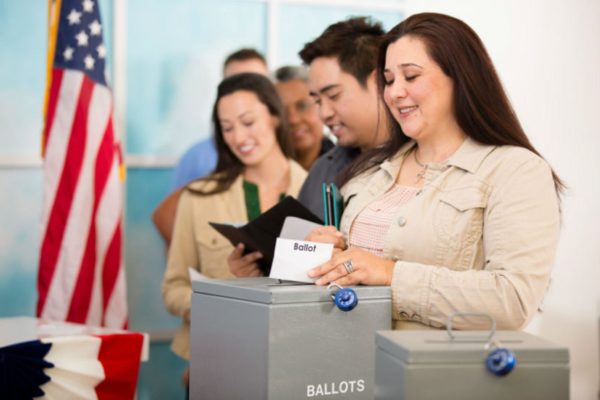Texas has a shameful and ongoing history of suppressing black and Latino votes.
Though a lower court’s 2013 ruling found Texas’ district map was “discriminatory at its heart” against voters of color, Texas Attorney General Ken Paxton recently asked the Supreme Court to take up an appeal of the decision. The ruling invalidated two of Texas’ congressional districts, Districts 27 and 35, as well as nine state House districts on the basis of racial discrimination. The attorney general’s action is the newest in a long battle over Texas’ voting districts that has taken place during the past six years.
It’s time the state stepped up to ensure that every eligible voter has an opportunity to be heard.
Spanning back to 1970, Texas has engaged in a pattern of racial discrimination in every 10-year redistricting cycle. This fact has historically earned the state federal oversight until 2013, when the Supreme Court case Shelby County v. Holder gutted the Voting Rights Act and freed several states and local governments from federal preclearance requirements. A day after the Shelby ruling, then-Gov. Rick Perry seized upon the opportunity to make the state’s gerrymandered district maps permanent.
Gerrymandering isn’t the only way Texas suppresses the voices of black and Latino voters. In 2016 alone, the state spent more than $3.5 million defending a set of restrictive voter ID laws that hindered black and Latino voters. The law, Senate Bill 5, has been to court four times since 2014 and each time was struck down as racially discriminatory.
Studies show voter ID laws, such as the one in Texas, keep people from the polls. Researchers at the University of Wisconsin and Rice University have found that in states with voter ID restrictions, even those who actually have the accepted forms of ID often don’t turn out to vote due to a misunderstanding of the law.
In Texas, the NAACP estimates that more than half a million voters of color are restricted from voting by the state’s voter ID restrictions.
In the past, Texans could count on the federal government to intervene on behalf of voting rights. But in late September, the Supreme Court rejected a request to speed up their review of Texas’ district maps. Earlier this year, the Department of Justice dropped their prior federal opposition to Texas’ voter ID law.
These two developments mean that both SB 5 and 2013’s gerrymandered district maps will likely still be in place when Texans head to the polls in 2018. Texans across the state will bear the weight of these choices — under the state’s current maps, Texas Republicans hold 3.2 more congressional seats than they would if the state had “fair” maps in place.
The federal silence on these issues affects all Texans, but the burden is not distributed evenly. SB 5 and Texas’ district maps are critically injurious to the state’s black and Latino residents. The state’s population grew by 4.3 million between 2000 and 2010, and the majority of growth (as much as 90 percent by some estimates) took place within the state’s black and Latino communities.
Because of this population growth, Texas gained four additional congressional seats, which under the state’s district maps went to white Republicans — there was no opportunity for black and Latino communities in the plan.
Disheartening as it all may seem, it’s important that Texans remain hopeful. Voters in Texas can support legislation that would create a nonpartisan body to create district maps, as Iowa has done with its Legislative Services Bureau. The state can also work with local groups to ensure Texas’ black and Latino communities understand the policies around when and where they can vote, as well as how to register.
There is no federal right to vote, leaving states to determine voting rights, for better or worse. What we are witnessing in Texas amounts to disenfranchisement and is an outright attack on communities of color. The right to vote is central to democracy. As long as the state employs tactics that discourage and hinder black and Latino voters, it cannot be a legitimate democracy.
Lauren Lluveras is a postdoctoral fellow in the Institute for Urban Policy Research and Analysis at The University of Texas at Austin.
A version of this op-ed appeared in the San Antonio Express News, Austin American Statesman and the Corpus Christi Caller Times.
To view more op-eds from Texas Perspectives, click here.
Like us on Facebook.




